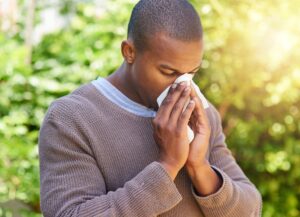 A lot of people have been talking about how their allergies have been getting way worse in recent years, and I’m one of them. As allergy season has kicked off in parts of North America, let’s take a look at why.
A lot of people have been talking about how their allergies have been getting way worse in recent years, and I’m one of them. As allergy season has kicked off in parts of North America, let’s take a look at why.
First, it doesn’t just seem like they are getting worse; they are. But what is it? Is it lifestyle? Are stress and poor sleep contributing to it? Is pollen stronger? Is there more pollen? Is climate change responsible for worsening allergies and asthma rates over the past couple of decades?
Advertisement
One of the biggest reasons for worsening allergy symptoms is that there is a longer pollen season. Seasonal allergies tend to be caused disproportionately by trees in the spring, grasses in the summer, and ragweed in the fall. But the growing period of “frost-free days,” the time from the last frost in the spring to the first frost in the fall, allows a longer period for allergens to be in the air.
In many places across the United States, and because of climate change, spring starts later and fall ends later, allowing more plants and trees to grow, flower, and produce pollen. Recent research has shown that rising concentrations of sneeze-inducing pollens and lengthening pollen seasons from 1990-2018 are largely driven by climate change.
Climate change also impacts allergens by increasing the potency of pollen. Plants grow bigger and produce more pollen when they are exposed to higher levels of carbon dioxide.
Some research has shown that ragweed pollen, the main culprit of allergies for many people, becomes up to 1.7 times more potent under high carbon dioxide. Warmer climates also expand the area where pollen-producing plants can live.
So what can you do about it?
The first thing is to work with your doctor to find the best approach to treatment. Some symptoms are best treated with medications, whereas some may be best addressed with allergy injections.
Advertisement
Injections expose small amounts of allergens in a controlled manner to help your immune system better respond to allergens.
You can also track pollen counts and manage your activities around them. Wearing a mask outdoors may be helpful, as can keeping your home and car windows and doors closed.
Washing your clothes immediately when you come inside and not leaving them to linger in your bedroom or transfer to furniture can also help.
